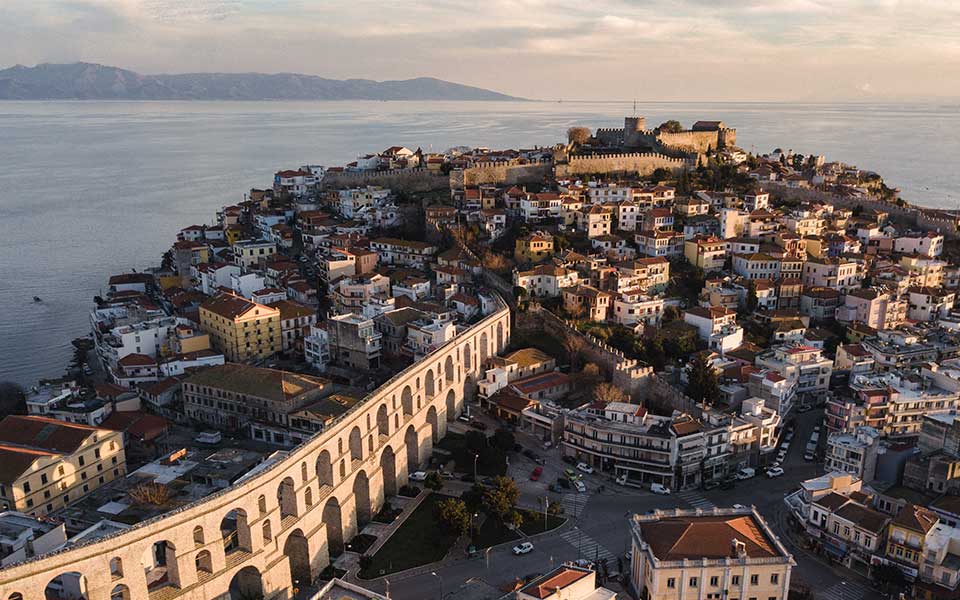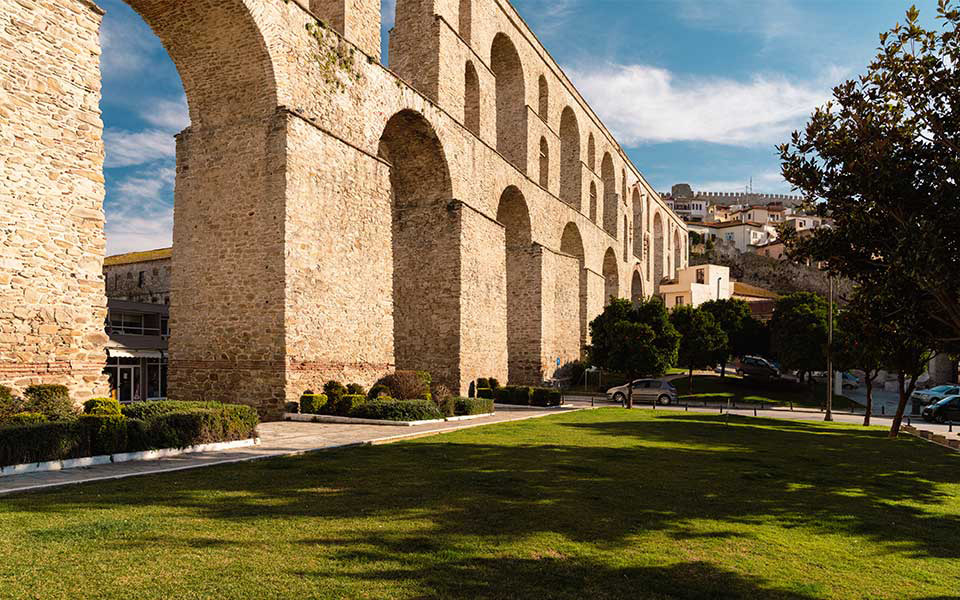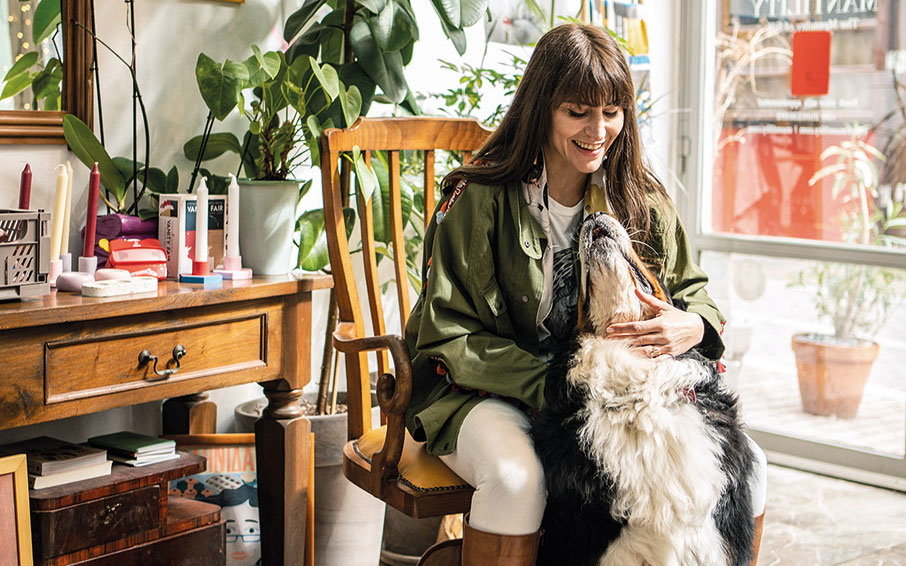The Ceramic Legacy of Panos Valsamakis in Athens
The workshop of famed tile painter...

Panagia, the old town of Kavala.
© Nicholas Mastoras
Panagia is Kavala’s old town. The peninsula on which it is built contains all of the city’s history: the 15th-century fortress built from granite, brick, and marble, with its central circular tower that offers a panoramic view; the Halil Bey Mosque (also known as Palia Mousiki), pink on the outside, blue on the inside; and the house of the founder of modern Egypt, Mohammed Ali (who was born in Kavala in 1769), known as the “Konaki” from the Turkish word for house, and divided traditionally into a selamlik (men’s quarters) and a haremlik (women’s quarters); and the mansion on Poulidou Street, which was, among other things, the seat of the police (Okhrana) during the Bulgarian occupation of the Second World War. Of course, there’s also the iconic Imaret, once an Islamic seminary, housed in a Baroque Ottoman complex with impressive domes, which now operates as a boutique hotel.
A stroll through Panagia provides all of these sights – landmarks of this old important metropolis of the Greek North.
Fortress of Kavala: Tel. (+30) 25108.386.02
Imaret: 30 Poulidou, Tel. (+30) 25106.201.51 (guided tours available)
Mohammed Ali Museum: Tel. (+30) 25106.205.15 (guided tours available)

Kamares.
© Nicholas Mastoras
Kamares is the old aqueduct of Kavala. 270 meters long and 25 meters high at its tallest point, it dates back to the 16th century (although it’s believed it may have been built on top of an older, Roman aqueduct). A unique monument with imposing arches, it’s one of the most beautiful of its kind in Greece, and was still used to supply water to the city until the first decades of the 20th century. Now, it has historical and architectural value. You’ll get a good look while driving, as the highway passes below it.

Tobacco Museum of Municipality of Kavala
© Nicholas Mastoras
Kavala is inherently tied to the tobacco trade, historically so mainly because of its port and the nearby tobacco fields. Today, the business no longer holds much economic power, yet the people of Kavala do not forget the city’s tobacco history. The old tobacco warehouses still stand in the city, and a Tobacco Museum has been welcoming visitors for the last twenty years. Stop by to view collections of rare artifacts, tools, photographs, and artwork made from tobacco leaves.
Tobacco Museum of Municipality of Kavala: Konstantinou Paleologou, Tel. (+30) 25102.233.44 (guided tours available).

Vassiliki Zafiria Ypsilanti, creator of Mantility.
© Nicholas Mastoras
Mantility Home is a gallery dedicated to silk, created by Kavala native Vassiliki Zafiria Ypsilanti. This is a very special place in the center of the city. Here, one can find silk scarves, purses, ribbons, and other accessories made of silk made by the famed silk producers of Soufli, printed with original designs from (mainly) Greek visual artists – beautiful items that perfectly balance fashion and art.
19 Ethnarchou Makariou, Tel. (+30) 25102.301.92, mantility.com.

Kostas Karakitsos in his pottery workshop in Avramilia.
© Nicholas Mastoras
The pottery workshop of Kostas Karakitsos is located half an hour outside the city of Kavala, in the village of Avramilia. It’s worth a short trip there to see his works: Notable are his “Travelers” (figures in long robes, distinguished by suitcases and hats) and “Women” (oblong female figures holding items like birds, apples, or boats). You’ll also find many utilitarian ceramic objects related to everyday culture (plates, bowls, and glasses for wine and tsipouro, among other lovely things).
Avramilia, Tel. (+30) 25910.523.62, karak.gr.
The workshop of famed tile painter...
From olive presses and traditional costumes...
How the cargo of a prehistoric...